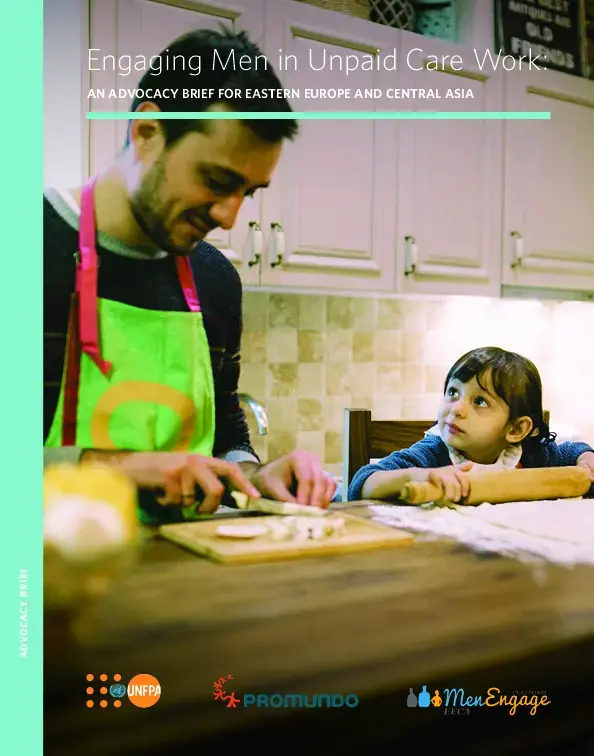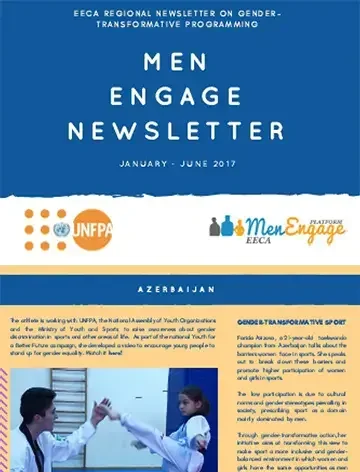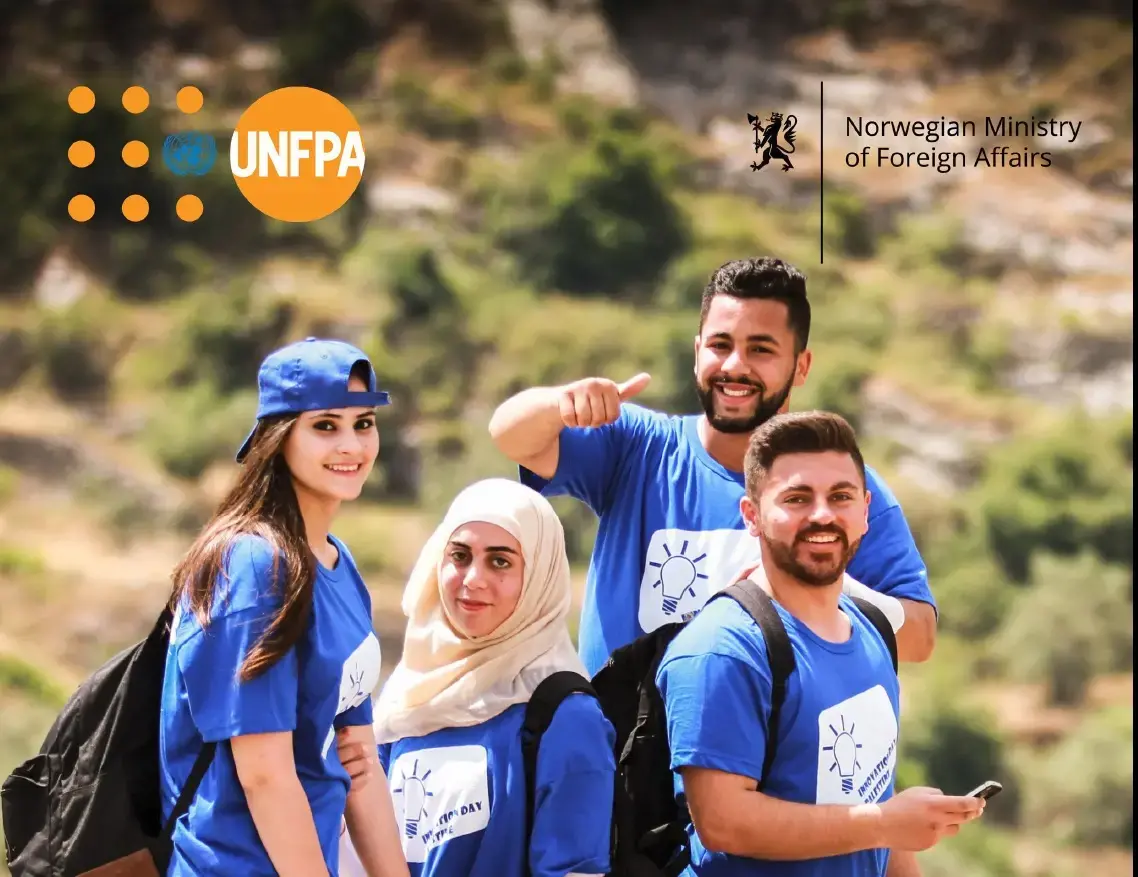Country Representative
Dr. Ademola Olajide is United Nations Population Fund(UNFPA) Country Director in South Sudan. The United Nations sexual and reproductive health and rights agency.
Dr. Ademola Olajide is United Nations Population Fund(UNFPA) Country Director in South Sudan. The United Nations sexual and reproductive health and rights agency.
KYIV, Ukraine — Rigid, traditional views of gender roles in society and stereotypical ideas about masculinity and femininity are common among men in Ukraine, contributing to gender-based violence, unequal treatment for women, and poor mental and physical health outcomes for women and for men themselves, according to a ground-breaking survey initiated by UNFPA.
No. of pages : 40
Publisher : UNFPA and Promundo
Publication date : 15/06/2018
Author : UNFPA and Promundo

Unpaid care work is often considered a secondary issue, but it’s one of the key drivers of women’s inequality. In Eastern Europe it is also an element in continuing low fertility as the prospect of having to shoulder most of the unpaid care forces women to choose between having children and having a career.
ISTANBUL, Turkey — The idea of a workshop to teach men how to iron clothes was initially greeted with skepticism, if not outright mockery, by Aleksandar Grujic’s male peers in the former Yugoslav Republic of Macedonia. “But afterwards, when they had learned some new tips and tricks, they realized how useful it can be, and how it’s nothing complicated,” says Grujic, who served as an ironing instructor at the first-ever “Men Can Do It Too” fair in Skopje last year.
No. of pages : 104
Publisher : UNFPA WCARO
Publication date : 02/01/2017
Author : UNFPA WCARO
No. of pages : 9
Publisher : EECA MenEngage Platform
Publication date : 06/10/2017
Author : EECA MenEngage Platform

News from January to June 2017 on gender-transformative programming in Azerbaijan, Kyrgyzstan, Serbia and Ukraine, plus reports on International Father's Day celebrations in Georgia and Ukraine, and on the MenCare Global Meeting 2017 held in Belgrade from 8 to 10 June.
For more information on partnering with men and boys for gender justice, visit the EECA MenEngage Platform.
No. of pages : 31
Publisher : UNFPA Palestine
Publication date : 25/10/2017
Author : Nanki Chawla

Youth in Palestine is a report that describes the various challenges face youth in Palestine. The author, Ms. Nanki Chawla, also sets a number of recommendations that decision makers and civil society organizations can take to ensure that, at least, some of those recommendations can be met to ensure a better life for youth.
What are the policy and program recommendations to address demographic risks and opportunities can be found in this report.
No. of pages : 7
Publication date : 13/10/2017
Author : UNFPA

The Country Programme Document outlines the United Nations Population Fund's mandate and scope of work for the five year period from 2018-2022.
The document has been cleared by the Ministry of National Policies and Economic Affairs.
IMISHLI, Azerbaijan — In the small, remote villages around Imishli district, gender-based violence is largely thought of as a private matter. The stigma around the issue keeps many people from reporting incidents of violence, or even discussing them. As a result, an entire community may be aware of violence happening in a particular household, yet no one ever intervenes. But that is starting to change.
As part of the workshop held with our Change Agents in Kalwa (Thane, Maharashtra), SNEHA team working with adolescent girls supported by UNFPA India conducted a safety audit exercise with 36 participants on 16th September, 2017.
An energizer exercise was conducted with the girls, who were asked to enact scenes from within the community, with alcohol shops, tea stalls, toilets, cigarette shops. They were then asked to talk about how and why they felt unsafe in these kinds of spaces.